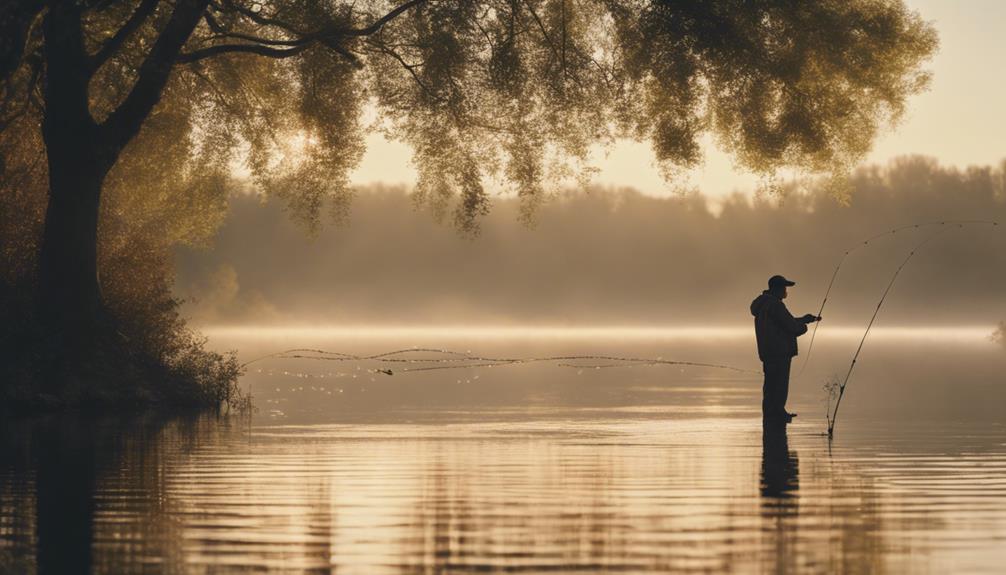Fishing is a beloved pastime for many, offering a peaceful escape into nature and an opportunity to bond with family and friends. However, before you cast your line, it’s crucial to understand the regulations surrounding fishing licenses. One common question that arises is, “What age do you have to have a fishing license?” In this blog post, we will dive deep into the age requirements for fishing licenses, the importance of having one, and how regulations can vary by state.
Understanding the Basics of Fishing Licenses
Fishing licenses are permits issued by state wildlife agencies, allowing individuals to fish legally in designated waters. The primary purpose of these licenses is to manage fish populations, protect ecosystems, and ensure sustainable fishing practices. Each state has its own regulations regarding fishing, including specific age requirements for obtaining a license. Generally, most states require individuals above a certain age to have a fishing license, while younger anglers may be exempt or have different rules.
What Age Do You Need to Be to Obtain a Fishing License?
While the specific age at which you need a fishing license can vary, most states require individuals aged 16 and older to have one. In some states, individuals under 16 may fish without a license but may need to adhere to certain regulations, such as being accompanied by a licensed adult. To find the exact age requirement in your state, it’s essential to check with your local wildlife agency or visit their official website. This ensures that you comply with the laws and enjoy your fishing experience without any legal issues.
Variations in Fishing License Ages Across States
As mentioned earlier, fishing regulations can vary significantly from one state to another. For example, in some states like Texas, individuals must be 17 years old to purchase a fishing license, but those under 17 can fish without one if accompanied by a licensed adult. Meanwhile, states like Florida allow individuals 16 years and older to fish independently with a license. Understanding these variations is crucial, especially if you plan on fishing in different states or if you’re a parent teaching your child how to fish.
The Importance of Having a Fishing License
Having a fishing license is not just about compliance with the law; it also plays a vital role in conservation efforts. The fees collected from fishing licenses are often used to fund wildlife conservation programs, habitat restoration, and fish stocking initiatives. By obtaining a fishing license, you contribute to the sustainability of fish populations and the overall health of aquatic ecosystems. Moreover, fishing licenses help regulate fishing practices, ensuring that everyone has a fair chance to enjoy this activity while protecting natural resources.
Exemptions and Special Cases
While the general rule indicates that individuals 16 years and older need a fishing license, there are often exemptions and special cases to consider. Many states have “free fishing days” or events that allow individuals of all ages to fish without a license for a limited time. Additionally, some states offer discounted or free licenses for seniors, disabled individuals, or veterans. It’s essential to be aware of these exemptions, as they can provide opportunities for fishing without the financial burden of a license.
How to Obtain a Fishing License
Obtaining a fishing license is typically a straightforward process. Most states allow you to purchase a fishing license online through their wildlife agency’s website, at designated retail outlets, or in-person at local government offices. When applying for a license, you will need to provide personal information, such as your name, address, date of birth, and sometimes identification. Additionally, be prepared to pay a fee, which can vary based on age, residency status, and the type of fishing license you are applying for.
Educating Young Anglers About Fishing Regulations
Teaching children about fishing regulations, including the age requirements for fishing licenses, is crucial for fostering responsible anglers. Involving young anglers in the licensing process can help them understand the importance of obeying fishing laws and respecting nature. Encourage children to learn about their state’s fishing regulations, including size and bag limits, seasonal restrictions, and specific rules for fishing in certain areas. This knowledge not only enhances their fishing experience but also instills a sense of responsibility towards conservation.
Conclusion: Stay Informed and Fish Responsibly
In conclusion, understanding the age requirements for fishing licenses is essential for anyone looking to enjoy this rewarding activity. While most states require individuals aged 16 and older to have a fishing license, variations exist, and exemptions may apply. By obtaining a fishing license, you contribute to conservation efforts and ensure sustainable fishing practices. As you prepare for your next fishing adventure, take the time to familiarize yourself with your state’s regulations, and remember to educate young anglers about the importance of fishing responsibly. Happy fishing!
